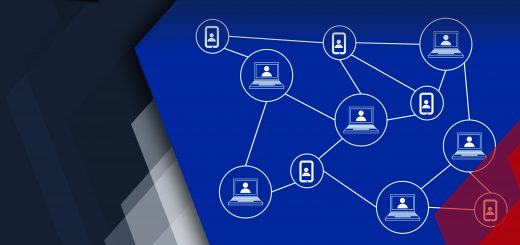Licensing Patent: Which Type Of License Suit Your Invention the Best?
Licensing Patent: Which Type Of License Suit Your Invention the Best? – It is the most imperative instruments accessible to proprietors to create income from their developments. Be that as it may, what we have to comprehend is that the entire procedure of looking for potential licensee, persuading them to purchase / license our patent is a long, dynamic and persistent process planned and executed wisely. Before you take a dive into the process of patent licensing, it is critical to comprehend about the patent licensing, its types and nature with the goal that you profit the out of the arrangement.
A license can be easily understood as an agreement by which the proprietor of a patent passes on certain rights of the proprietor to another individual or corporation. These rights incorporate the privilege to exclude others from making utilizing, and offering the creation. Consequently, the proprietor gets monetary or other benefits.
Types of licensing
A wide range of licenses are listed below categorized by the time span and extent of utilization. The fundamental types and terms for patent licenses are:
Exclusive License: Only one party will be licensed for using the invention by the patent proprietor and the owner himself will not use the right on his own. With this, the proprietor will transfer all indicia of possession to the licensee aside from the title of “patent holder” to the purchaser.
Advantages
- IP proprietor: Benefits by accepting a total sum of money that makes up for loss of future profit and averts the risk of the item not achieving the market or being fruitful.
- Licensee: Benefits by realizing that they will be the sole beneficiary of the benefits subsequent to conveying the item to a market state.
Limitation
These licenses don’t generally give cover assurance to the licensee since the proprietor can put limitations that confine the license.
- Item confinements: Limit the licensee’s utilization of the IP to a specific class of item.
- Field confinements: Limit the licensee to a particular field of use.
- Region limitations: Confine the licensee to a particular topographical range.
The objective of the limitation is to hold the remaining rights to market in-house and to license the IP rights to various distinctive licensees, all being issued exclusive licenses with supplementing limitations.
Sole License: A sub–type of exclusive licensing is sole license. It differs from the exclusive license by an exception. Like the exclusive license, only one party will be granted the license. However, the licensor is qualified for pursing utilization of the authorized subject inside an area stated in the exclusivity. Unlike, the licensor holds the privilege to utilize the protected innovation.
Non-Exclusive License: More than one party can be licensed for using the invention by the innovator and may likewise utilize the privilege being referred to him. It does not restrict the proprietor of the subject of industrial property in utilizing, or managing, the privilege being referred to in any capacity.
Sub-Licenses: A licensee might have the capacity to issue more licenses on the creation to different organizations. It is an exchange of the rights as an outcome of a grant from passive licenses to a third party, which will freely keep on exercising the rights and commitments as indicated by the sublicense documented. The amount of profit earned through sub-licensing relies upon the license agreement with the primary licensee.
Cross-Licensing: In circumstances where an organization or innovator can “exchange” licenses with different organizations and creators is called “cross-licensing “. This frequently happens when an item requires a few other protected innovations to be functional. It is an agreement between at least two parties where each party issues right to their protected innovation to the other party and the parties are in the position as a supplier (rights proprietor) and as an acquirer (licentiate). These licenses will commonly happen when a settlement of aggravated relations is required between the rights proprietors, whose objective is not to benefit but rather to guarantee ease in the strained circumstance. Despite the fact that this kind of license applies especially in patent issues, but it is not restricted and includes its quality inside the trademark plan as well.
Compulsory License: It is a non-exclusive license to the patent that was requested by an authority to ensure the property. The circumstances under which the compulsory license is forced on the patent proprietor are set by national authorities and regulatory body for the protection of innovations independently. Only in serious circumstances that the privilege of individuality- the patent proprietor is shifted back in light of a legitimate concern for the population.
Voluntary Licensing
A voluntary license can be better understood as the license between a patent holder and an individual in a nation, or serving the nation’s market, where chances for huge cost-regulation can be managed. The advantages of such licensing depend critically on the terms of the agreement and the capacity of the licensee.
Patent holders may permit the privilege to make, import, or potentially convey a pharmaceutical item to different parties either exclusively or non- exclusively. Based upon the terms of the agreement, the licensee may act altogether or successfully as a specialist of the patent holder; or the licensee might be allowed to set the terms of sale and distribution in a market, dependent upon installment of the royalty.
Conclusion
Licenses can be recognized by the type of instrument such as –trademarks, industrial design patents, or commercial secrets. With each instruments, the licenses are particularly altered. For instance, in industrial rights, licenses are specifically barred. Similarly different kinds of license are permitted by a copyright license agreement. Each type of intellectual property has different of license and one must always check the permitted license agreement in order to facilitate the most.




